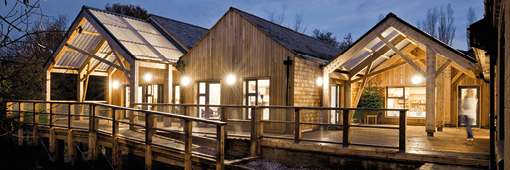Aspen
Latin name: Populus tremuloides
Also known as: American aspen, Canadian aspen, quaking aspen
Wood Type:
Hardwood
Durability:
Not durable
Treatability:
Extremely difficult
Moisture Movement:
Large
Density (mean, Kg/m³):
450
Texture:
Fine
Availability:
Limited availability at specialist timber merchant
Price:
Low
Use(s):
Joinery - Interior
Colour(s):
Grey (White to pale brown)

Introduction
Species of the genus Populus produce commercial aspen, cottonwood and poplar. Apart from Liriodendron tulipifera, American yellow poplar, or tulipwood (see Tulipwood), the timbers are similar. See poplar for description of the timber.
Environmental
Not listed in CITES. Believed available from well-managed sources. Check certification status with suppliers.
Distribution
Populus tremuloides Michx. produces Canadian aspen, otherwise known as aspen or quaking aspen. This occurs fairly widely from Newfoundland and Nova Scotia to Alaska, and from northern New England to Minnesota and southwards along the Appalachians. The weight of dried timber is about 450 kg/m³.
The tree
The tree is normally from 15m to 18m tall, with a diameter of about 0.3m.
The timber
A light but relatively strong timber with a light uniformed colour with little colour difference between sapwood and heartwood.
Drying
Requires care to avoid warping and twisting during drying.
Working qualities
Medium - The timber works easily, although there may be a tendency to bind on the saw. A smooth surface can be obtained, but there is a tendency for the fibres to tear in sawing, and sharp thin edged tools are needed to avoid woolly surfaces in planing. The wood can be nailed, screwed, glued, stained and finished with the usual treatments satisfactorily.
Suppliers |
|
|---|---|
International Timber
|
|
Suppliers |
|
|---|---|
International Timber
|
|



















